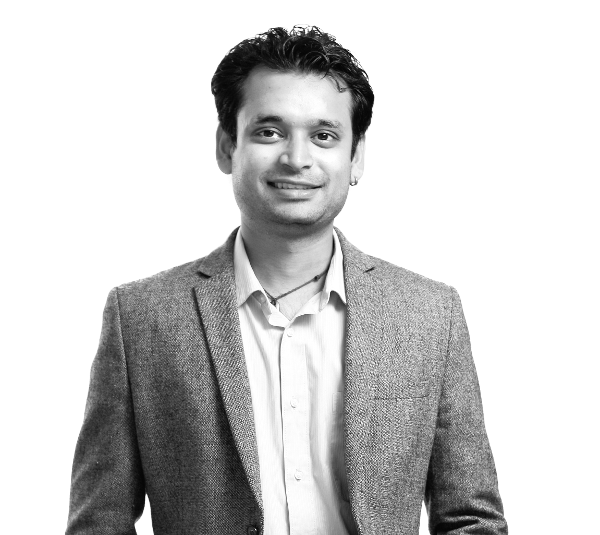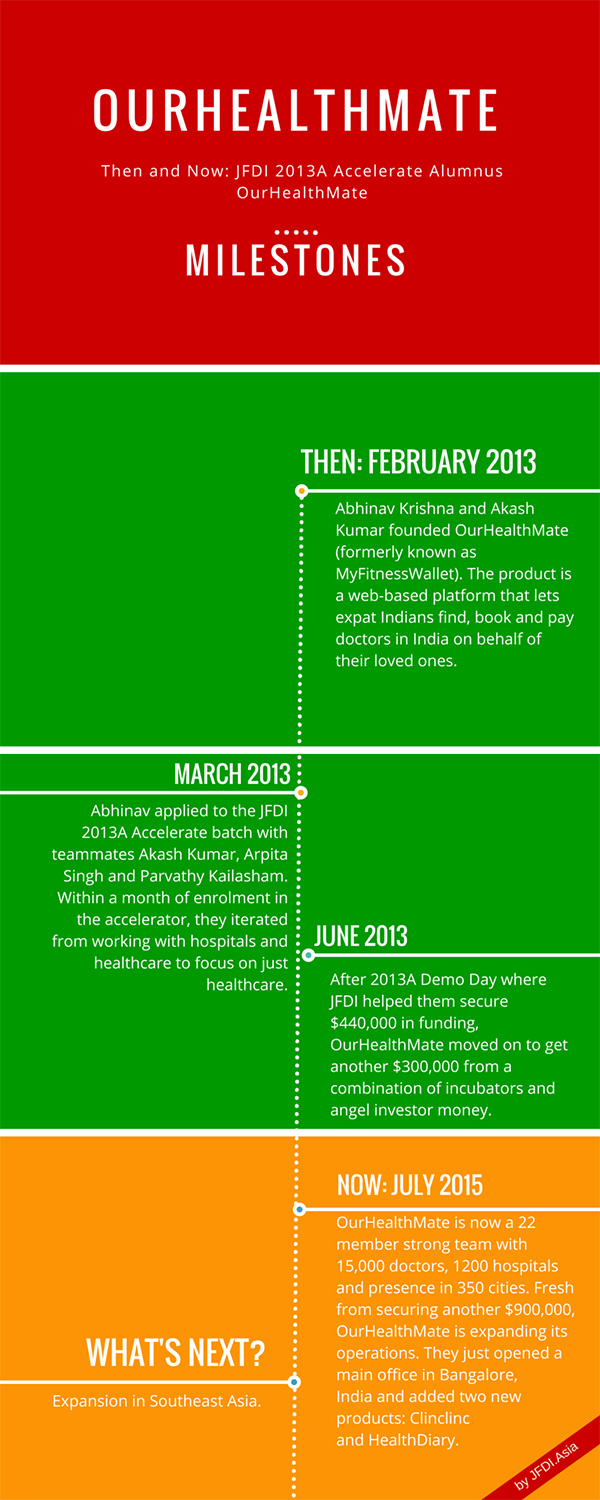What happens to startups after JFDI? OurHealthMate mapped its journey in an infographic, writes Crystal Neri

In June 2013, Abhinav Krishna started his pitch to the crowd on Demo Day with a story. It all began four years earlier when he sent money for his Dad’s health care, only to see that money go into a savings account. He realized that the distance from his family is making him helpless in managing their medical needs.
It turns out that’s a common theme among his friends and India in general. Every year, 22 million NonResident Indians (NRIs) send USD $10 billion to their loved ones back home, intending it for doctor visits and medication. But sometimes funds get used for other expenses or just stay saved – as with Abhinav’s father.
So Krishna and his team set out on a mission to make medical remittances go directly to the doctor. The result is OurHealthMate, a medical appointment portal which allows easy appointment bookings over the internet. From 2013 to 2015, here is OurHealthMate’s journey:

Today OurHealthMate is a successful enterprise with a team of 22 working with 15,000 doctors, 1200 hospitals and presence in 350 cities.
I asked Abhinav Krishna what were the biggest lessons learned in his startup experience and it turns out that learning to cope with ambiguity has been the biggest take-away.
“Mentors often provide conflicting advice, like Go after big accounts! Go after small accounts! Go B2C! Go B2B!,” says Krishna. “Mentors provide a point of view based on their professional experiences and limited perspective into our market and customer base. While mentor feedback is extremely valuable, entreprenuers ultimately need to make key decisions ourselves.”
 Crystal Neri writes content and handles social media at JFDI Asia. Say Hi to her on Twitter, @nericrystal.
Crystal Neri writes content and handles social media at JFDI Asia. Say Hi to her on Twitter, @nericrystal.

